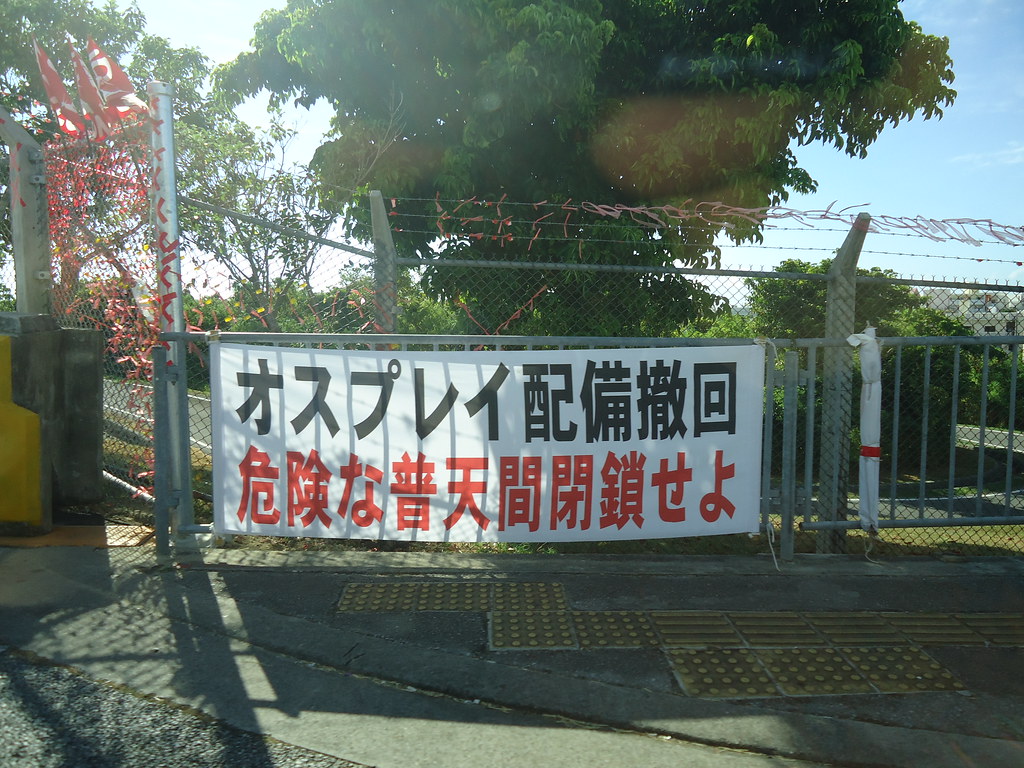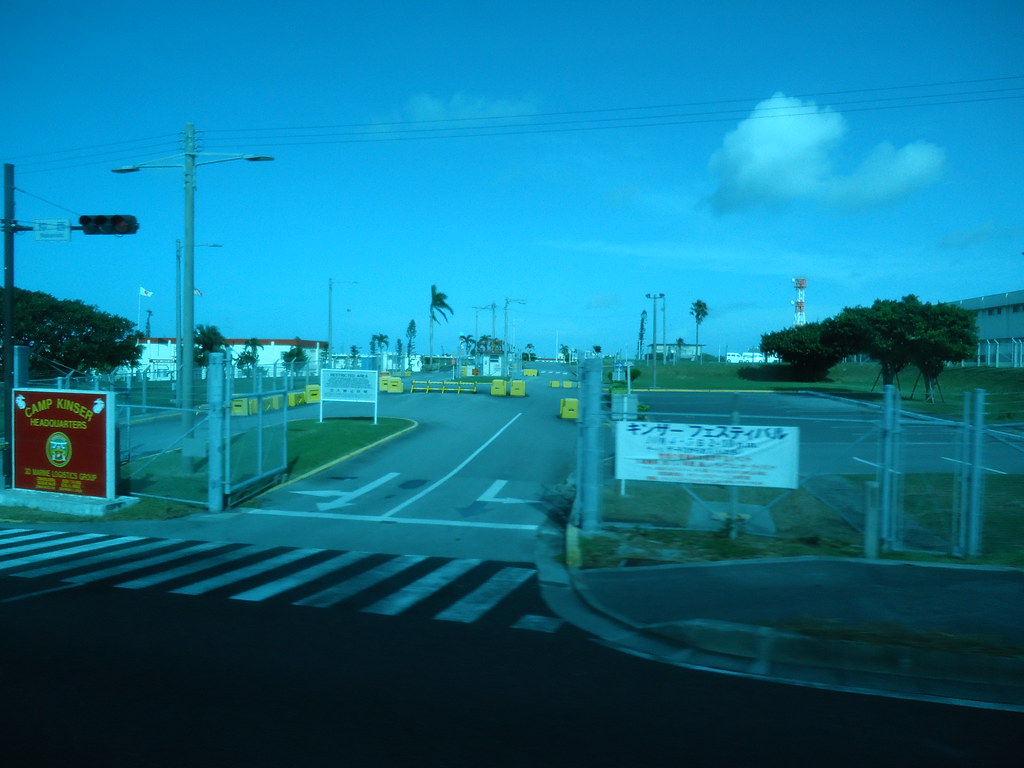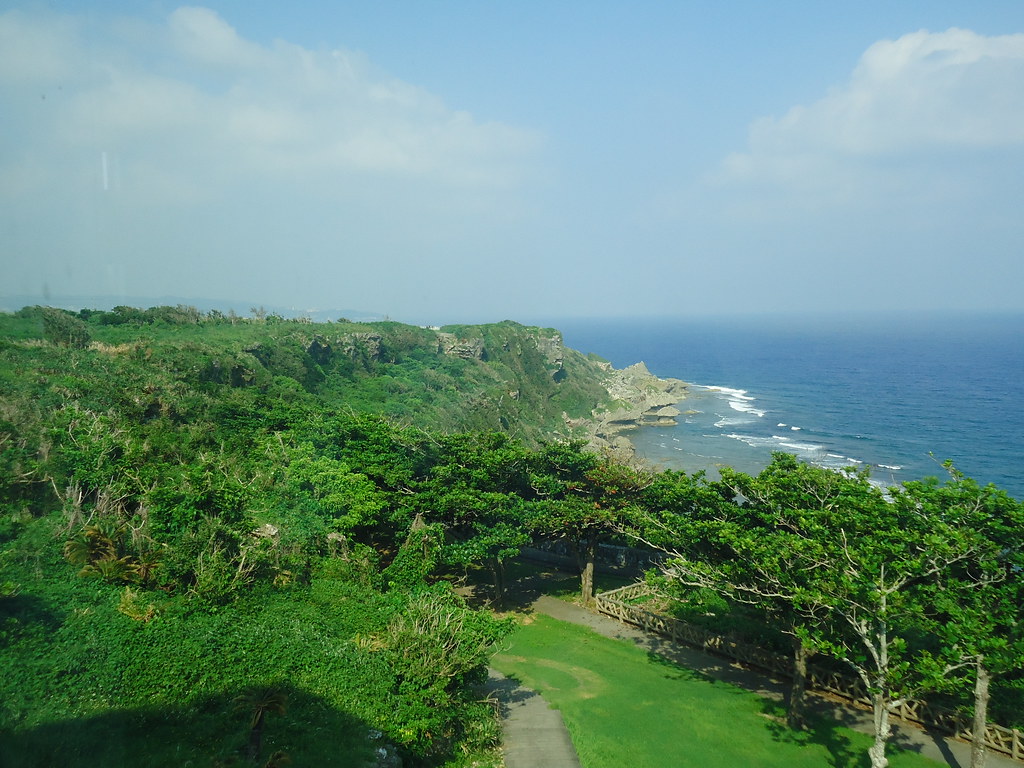Meanwhile, elsewhere in the realms of I’d better post about this soon while it’s still relatively timely, on Nov 16, Okinawa elected a new governor, Onaga Takeshi, who promises to be more unequivocally and steadfastly anti-base than his predecessor, Nakaima Hirokazu.
And my sanshin teacher from Hawaii (Norman Kaneshiro, in the red) was at the victory party!
Thanks so much to Joseph Kamiya of PaperShop Projects for providing this video! (incidentally, Kamiya has a name-your-price digital album of Okinawa-infused remixes which is pretty excellent. Take a moment and check it out.)
That construction at Henoko – run by the central-government, and outside the direct control of the Okinawa prefectural government – continues despite the opposition of as much as 80% of Okinawa’s population, is often represented by Okinawans and their supporters as a failure of democracy. And I would agree. Okinawans have all the same full rights and freedoms as any Japanese citizens, and they get their proportional portion of votes in the national legislature. But, time and again, they are outvoted, overrode, by Tokyo’s decisions. Which would be fine, and fair, when it comes to national matters. But when it pertains to their own home, their own land…
A Washington Post article on the election begins:
The man likely to become the next governor of Okinawa insists he’s not anti-American. He’s not even anti-alliance. In fact, he declares, he loves the United States.
But what he really loves, most of all: democracy.
“It’s good to be democratic,” Takeshi Onaga said in an interview at one of his campaign offices in central Naha, the capital of this subtropical island chain south of the Japanese mainland. “How can we criticize countries like China if we don’t respect democracy here in Japan?”
Onaga is further quoted in the New York Times as saying, very much along these lines, that “The new military base will not be built. … I will convey the will of the Okinawan people to the governments of Japan and the United States.” I am encouraged to read, too, that Onaga plans to open a Washington office, where Okinawan representatives can meet with American officials, and maybe, hopefully, get their voice heard a bit more loudly.
 A banner hung on the fence at Futenma Air Base, reading “Revoke the stationing of Ospreys. Close the dangerous Futenma.” Photo my own, August 2013.
A banner hung on the fence at Futenma Air Base, reading “Revoke the stationing of Ospreys. Close the dangerous Futenma.” Photo my own, August 2013.
Maybe I’m just living in an echo chamber, but after reading anti-base blog posts, news articles, and so forth nearly every day, I found it very interesting to see The Economist’s take on the election. Published on Nov 15, the day before the election, the article calls Onaga “the most dangerous … of the three candidates opposing Mr Nakaima,” and speaks chiefly from a very geopolitical point of view, with a focus on the difficulties this will present for the US-Japan alliance. I do appreciate the turn of phrase at the very end of the article, that “many [Okinawans] feel their country has always thrown them off a cliff; American bases, rather than being a cornerstone of their defence, seem another reason why, one day, they might be attacked again.” But, overall, there is the sense here that the Okinawans are the obstacle for the US and Japanese governments, and not the other way around. Not that there’s anything wrong with offering different perspectives. A multitude of perspectives is, of course, ideal. But, I wonder to what extent other mainstream media sources – if they’re covering it at all – present this geopolitical strategic point of view, with only the briefest acknowledgements of any kind of sympathy for Okinawan perspectives.
That a Deutsche Welle article is titled “Japan’s new Okinawa governor could delay US’ Pacific pivot” shows their point of view. The more I learn of this “Asia-Pacific pivot,” the less I like it. Call me just plain ignorant if you’d like, I fully admit I don’t follow political news as closely as some, but when I was at the East-West Center in Hawaii, maybe it was just because of the environment I was in, but when I heard about the Asia-Pacific pivot, I genuinely thought this meant a “pivot” towards listening more to Asia-Pacific voices, and caring more about Asia-Pacific interests. Seems that’s not the case. The Economist article mentioned above describes it as “tilting American strategic weight towards Asia.” Not exactly what I had in mind.
The Guardian’s reporting takes a very similar position, in an article with the sub-title “Takeshi Onaga’s victory poses headache for Japan’s PM and for Washington, which is pushing for construction of new base.” It’s all in tiny twists of the wording. We are told “almost two decades on, local opposition to the move and political indecision in Tokyo means not a single marine or piece of military hardware has been moved,” implying that it’s the Okinawans’ fault that everything has been so delayed, when in truth I get the impression that these activists have never been pushing for anything to be delayed, but in fact, for the removal of the bases to be sped up as much as possible. It is Tokyo, and Washington, who have delayed dismantling Futenma until the controversial base at Henoko is ready, instead of listening to the Okinawan people, abandoning the Henoko project, and dismantling Futenma at the same time. In short, don’t blame the Okinawans for this, and don’t put Tokyo’s and Washington’s “headaches” as the key point in the story.
The Diplomat similarly reports “Local elections in Okinawa deal another blow to the prime minister’s agenda.”
Only in Forbes, of all places, do we find an article more clearly leaning in Okinawa’s favor. Entitled “U.S. Filled Okinawa With Bases And Japan Kept Them There: Okinawans Again Say No,” Doug Bandow’s Forbes article opens with:
The U.S. is over-burdened militarily and effectively bankrupt financially, but Washington is determined to preserve every base and deployment, no matter how archaic. Such as the many military facilities in Okinawa, which risks sinking under the plethora of American installations, runways, materiel, and personnel. No wonder the Okinawan people again voted against being conscripted as one of Washington’s most important military hubs.
The Honolulu Star-Advertiser, the one major paper in the US of which I’m aware that I expected to have a more sympathetic take, as far as I can tell, has not reported on the election at all.

 Above: The gates to Camp Kinser, just one of more than a dozen US military bases on the island, taking up roughly one-fifth of all land on the island, and denying Okinawans access to all this area behind the fences.
Above: The gates to Camp Kinser, just one of more than a dozen US military bases on the island, taking up roughly one-fifth of all land on the island, and denying Okinawans access to all this area behind the fences.
Below: The cliffs at Mabuni, where many Okinawans killed themselves in 1945, pushed by their own Japanese Army until they had nowhere else to go. Sacrifice for the sake of the nation was the mantra then, and so it remains today, for Okinawa. Both photos my own, Sept 2014.



